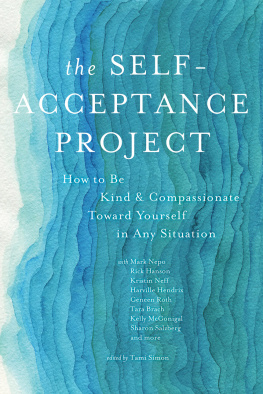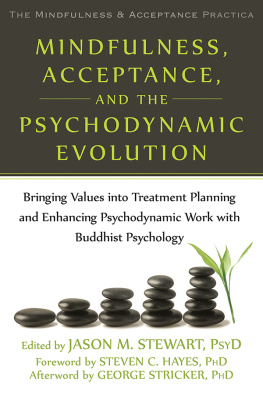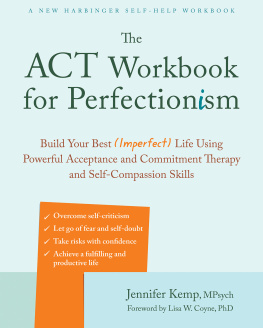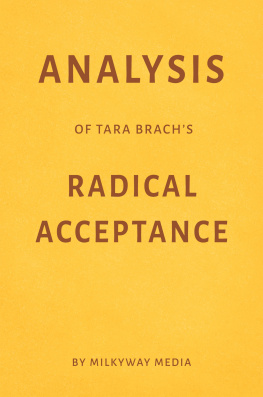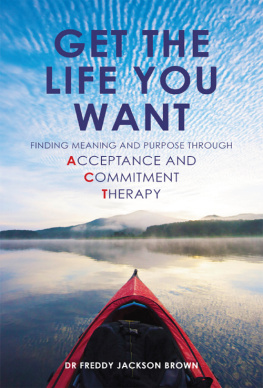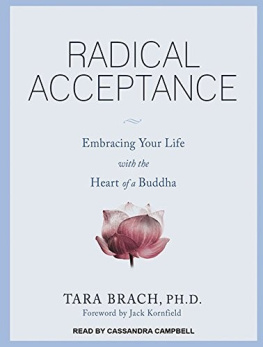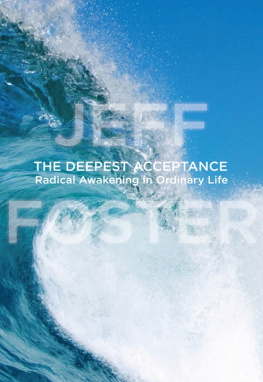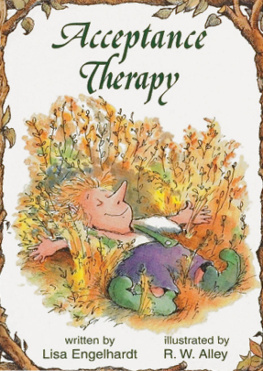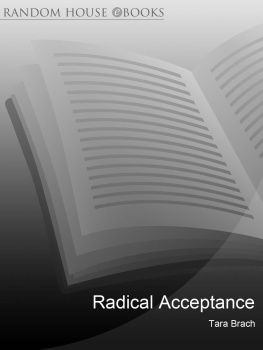
CONTENTS
Tara Brach, PhD
Friedemann Schaub, MD, PhD
Karla McLaren, MEd
Steven C. Hayes, PhD
Jay Earley, PhD
Erin Olivo, PhD, MPH
Harville Hendrix, PhD, and Helen LaKelly Hunt, PhD
Kristin Neff, PhD
Judith Blackstone, PhD
Bruce Tift, MA, LMFT
Jeff Foster
Raphael Cushnir
Geneen Roth
Mark Nepo
Rick Hanson, PhD
Kelly McGonigal, PhD
Colin Tipping
Robert Augustus Masters, PhD
Sharon Salzberg
INTRODUCTION
Tami Simon
Founder and Publisher, Sounds True
I ts hard to be kind to yourself. At least that is my experience, especially when difficult things happen.
Early on in my life, I discovered that there was a part of me that turned against myself when something unfortunate happened that I perceived to be my fault perhaps a misstep or something that felt like a failure. The first time this became painfully obvious was when I was twenty-two years old and had just launched Sounds True.
Its a long story, but the gist of it is that I decided it would be a terrific idea to produce and host a Soviet-American citizens summit for public radio as an extension of Sounds Trues conference-recording service. The broadcast was a chance for public radio listeners to hear Russian citizens in dialogue with Americans to illustrate how everyday people can become ambassadors of peace and goodwill. The broadcast itself was well done, and the content flowed seamlessly. There was only one problem, and it was a big problem: the translation feed did not come through to the broadcast audience. This meant when participants spoke in Russian (which was about twenty-five minutes of the hour-long production), listeners did not hear any English translation; they heard only the original Russian language. In other words, the live broadcast to tens of thousands of people was largely incomprehensible.
As producer and host, I was devastated and humiliated. People tried to console me: It is good for people to hear a language that is unfamiliar. You provided a public service. But inside, I felt like I wanted to die. Yes, end my life right there on the spot. I couldnt take a full breath. I wanted to crawl under a rock and never come out. Instead, I crawled into my hotel bed (if there had been room under the bed, I would have crawled there), and I squeezed myself into a tight ball for about twenty-four hours. There was no comfort there, only a terrible voice inside that said things like You should kill yourself now. I made a decision at that time to never produce and host a live broadcast event again. The potential pain of that type of failure was too much for me to bear. I only wanted to work on projects that I could polish and make perfect (perfect being the operative word). It was just too painful to do something that carried with it the risk of public humiliation.
Years later, this event from my young life as a producer and host receded into the background, and with it, the pain. However, I was left with two important discoveries: first, that I was determined to design my life to avoid such failures at all cost, and second, that I had a terribly mean voice inside that responded to difficult situations by punishing me and declaring that it would be useless for me to continue living. To say this voice was self-aggressive was an understatement. This voice spoke to me in a way that I could never imagine speaking to another person, yet it lived in me and had the potential to turn on me if things didnt go well.
As the years passed, I started to recognize this inner voice as a type of sub-personality (some people call it the inner critic or the judge) that seemed to have its own life. It would become active and vocal when something seemingly went wrong. This critical voice would even tear me to shreds over small and insignificant things like cooking a meal for friends and putting too much salt in the food and then I would have a sleepless night listening to it berate me. Really? I thought, Over something like this? Youve got to be kidding me.
With time, I started to take this voice less and less seriously it was so out of step with the actual magnitude of situations. Through a lot of inner work, both in one-on-one therapy and on the meditation cushion, the voice gradually began to lose its power. I could still hear it, but it was no longer in charge of my state of being. Other capacities came on board, including the capacity to be kind to myself and offer myself comfort. I even became curious about this voices origin and purpose: What function might it be serving in the total ecology of my psyche? What were the emotions, and the accompanying physical sensations, that lay waiting for me underneath the voice? Could I turn toward those emotions and sensations with openness and curiosity?
I also became intensely curious about other peoples experiences with self-criticism and self-judgment. How was it that some people made mistakes and viewed the entire experience as a learning opportunity? How could I become more like those types of people?
In parallel to my own growing curiosity about self-acceptance, I began working with people as a meditation instructor. In private meetings, people shared their innermost struggles with me. What often impacted me the most was how hard people were on themselves, how negative self-talk was more the norm than the exception. Very often, people had an overlay of self-judgment when they were in the midst of a difficult experience. Again and again, I heard people say, I am suffering in this way, and I feel like I am a terrible person because I am suffering in this way.
From those conversations, I saw that people judged themselves for so many different kinds of things for being too fat or too thin, for being too verbal or not verbal enough, for being closed-hearted or too open and porous. People judged themselves about their past if only this or that had or hadnt happened. People judged their sexual orientation or lack of a sexual orientation. People judged themselves for being too old, too this or too that, for not being enough of something or other. And people endlessly compared themselves to other people and mythic ideals. People had internalized voices of judgment about everything that they were and that they werent.
Working with meditation students, I also saw how self-judgment kept people from taking risks. It often felt like a lid that people used to keep themselves safe, small, contained, and under-potentiated. And this was painful to see how sensitive, good-hearted human beings often focus on what they supposedly lack instead of their beauty, strength, possibility, and power to create.
I started to see unconditional self-acceptance being kind to ourselves no matter what is happening in our lives as an immensely powerful life skill that most of us have not been taught. I started to see that being kind to ourselves is actually a human capacity that changes everything. It changes how we treat ourselves day to day, how we take risks, how we love, how we create, and how we make space for what seems unacceptable in others.
Over time, I came to see being kind to ourselves as quite an advanced practice. I call it an advanced practice because I found myself in conversation with people who had been on a path of personal growth for decades people who had been meditating or in therapy for years who still found it quite challenging to treat themselves with kindness when confronted with certain situations. And I wanted to know more about what makes self-acceptance so difficult for so many of us and, more importantly, how we can develop this capacity widely and broadly, individually and collectively, as a way to release waves and waves of kindness.
Next page
